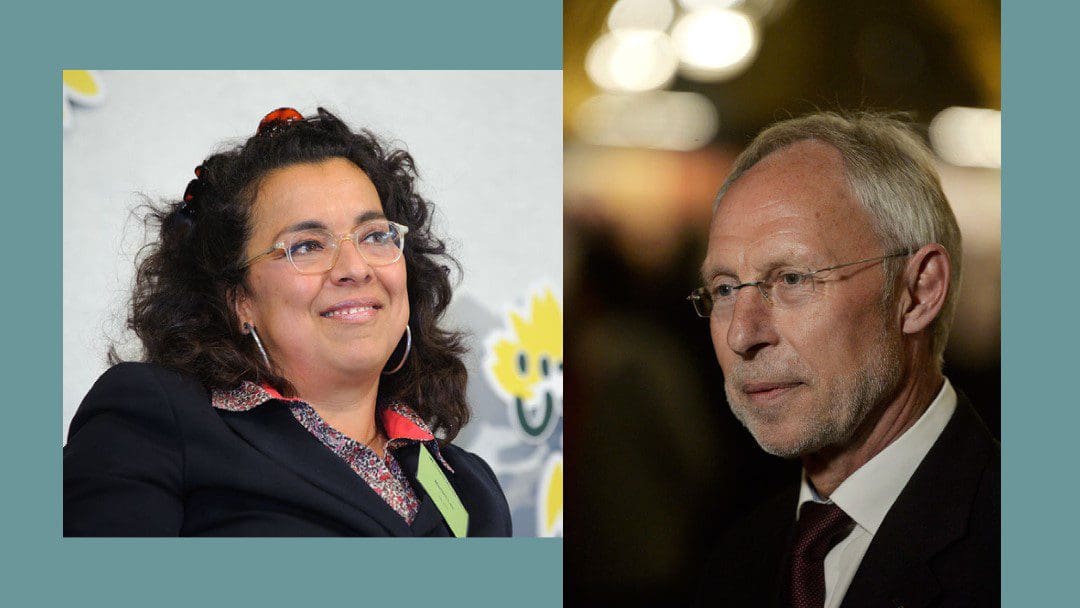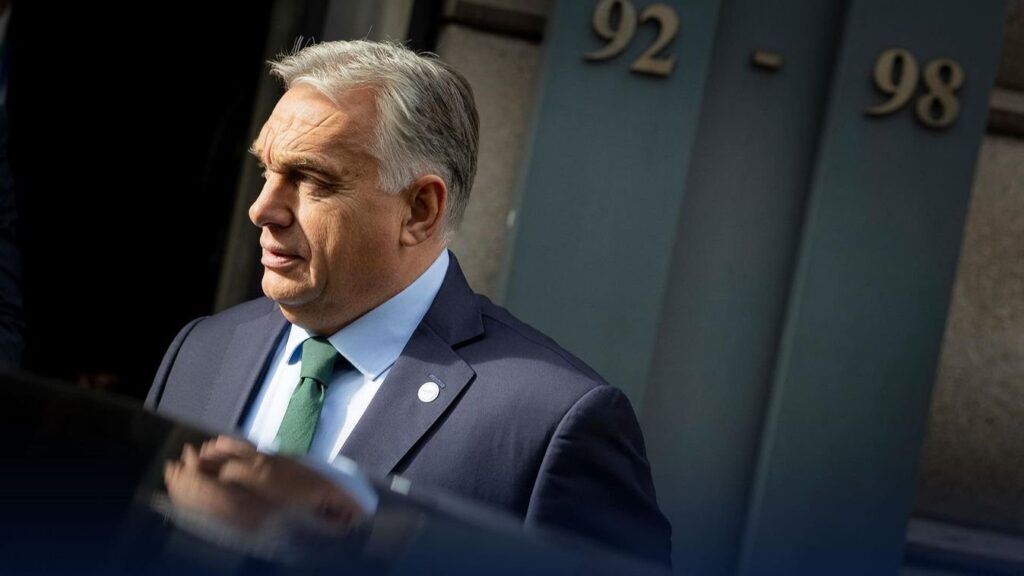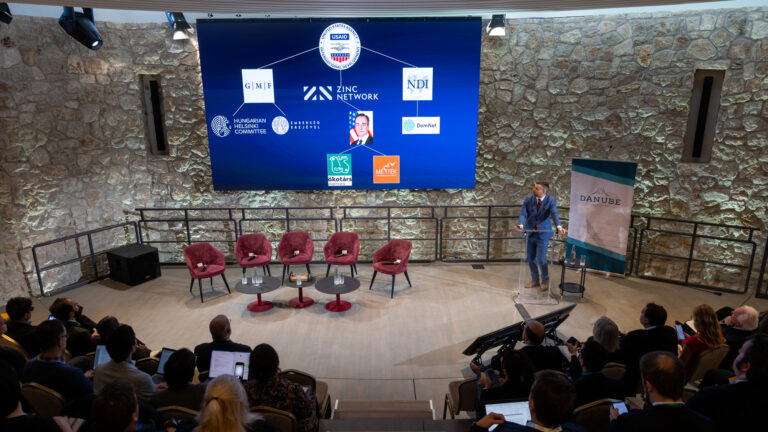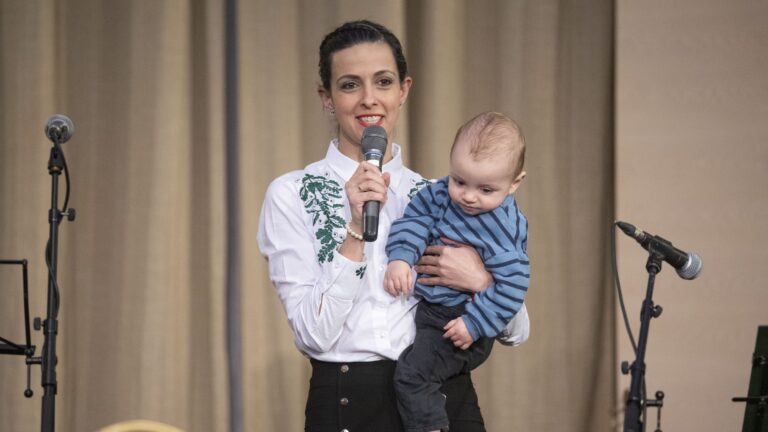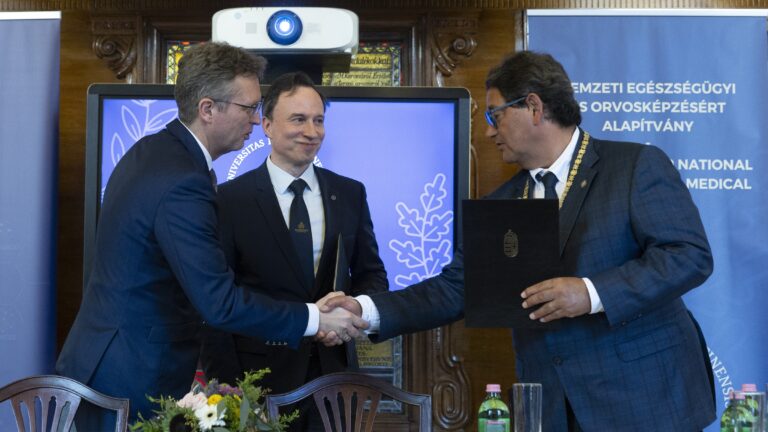Last year, German journalist Mariam Lau visited the Mathias Corvinus Collegium campus, which is currently still operating in a temporary location, but the building of its new centre on Gellért Hill is already in full swing. In the article that Lau penned in Die Zeit after the visit (Editor’s note: The article was published on 27 December), she noted that MCC’s goal is to train ‘the new patriotic generation’. The students then go out in all directions to spread the gospel of the Hungarians and the nation, she remarked, adding that the investment amounts to €1.7 billion, which is more than what all the universities combined receive in a year in Hungary. But it is in MCC that ‘Orbánism’ is maintained, developed and exported, Lau said in her article.
She nailed down that it is a fact that MCC degrees are not accepted anywhere in the world, but they are supposed to be a good reference in Hungary. The idea of Trianon is alive and well among young people, and the notion that the country was once great and free, only to be subjugated by foreign powers. However, most of the students ‘hiccupped’ when one of their peers said that Orbán had gained power democratically. As is well known, much of Europe does not agree with that proposition, Lau suggested. ‘Much of Europe’ apparently means Paul Lendvai, who is cited as saying that Hungary is a ‘controlled democracy’.
Orbán also founded MCC on the idea that the Hungarian countryside is decent, hard-working and Christian, while Budapest is intellectual, cosmopolitan and Jewish. He is proud of having worked the land and fed the pigs as a child, and he only learned how to use a real toilet at the age of 15. He uses anti-Semitic motifs, which has resulted in the ‘expulsion’ of CEU (a university still present in the country – the ed.) and the creation of Mathias Corvinus Collegium.
Bulgarian political scientist Ivan Krastev reminds us that there is a great fear in Hungary and Poland that the liberals will set the course for higher education and that it will be lost to the right. Therefore, control of universities is one of the main ambitions of conservatives, whatever it takes, the author said in the article.
MCC has already set up a centre in Brussels, but Orbánism has set its goals higher than that, according to Lau. Curiously, the post-communist country has now become a model for the American, Italian, French and even the German right, the journalist commented, with the Hungarian Prime Minister having become the hero of the Republicans, and Italian Giorgia Meloni worshipping Orbán.
However, Bence Bauer, who heads MCC’s ‘European cooperation department’ (in reality, Bauer heads the Hungarian-German Institute for European Cooperation), says that
Germany consistently misunderstands Hungary,
and this is not good for the Germans, as Hungarians represent the values that have been lost in Germany because of multiculturalism.
The Die Zeit piece concluded by saying that MCC has already started planning for the future. Although the Gellért Hill building is not yet in its full glory, it is starting to train the future elite, starting with the ten-year-olds.
In response to Lau, Hungarian-German Institute for European Cooperation advisor Frank Spengler wrote the following for Corvinák, MCC’s knowledge base in December:
Mariam Lau’s article in the weekly Die Zeit is on the one hand a repetition of well-known clichés about Viktor Orbán in Germany, and on the other hand an attempt, based on —rather superficial—observations to explain why the Hungarian version of conservative politics is so powerful.
Ms Lau’s dismissive attitude towards the Hungarian government is quite apparent throughout the article. In many cases, she draws on simple, suggestive messages. Nevertheless, Mariam Lau does not content herself with the simple accusations often made in the German media about Orbán—such as his authoritarian cementing of power, corruption, anti-Europeanism or his hostility to George Soros—but also points to the considerable appeal of the political model in Europe. It seems that the historical consciousness in Hungary, which is different from Germany, and the fact that Orbán ‘speaks as a father’, are enough for her to explain the current broad support for Hungarian politics. She did not praise a single one of the economic successes achieved under the Orbán governments or the attractive family policies. There is also no mention of the weak Hungarian opposition, yet she finds evidence in the body language of some MCC students of the suggestion that ‘across Europe, the legitimacy’ of the Orbán government is ‘highly questionable’.
According to the journalist, Orbán’s electoral success is above all based on the Hungarian media, because ‘it is estimated that 90 per cent of the Hungarian media is in the hands of pro-Orbán oligarchs’.
Unfortunately, Ms Lau failed to provide a source to substantiate this serious claim.
It seems that as collateral damage to the media, she must also accept that this claim may well offend a large part of the Hungarian electorate and democrats who gave Fidesz/KDNP in no less than four national elections a two-thirds majority in parliament.
It is obviously very difficult for her to deal with the fact that talented young people, open to modernity, are interested in Orbán’s policies. It is certainly not easy for a German journalist to acknowledge that there are young people who identify openly and firmly as conservative and patriotic. Apparently, this is why she was surprised that she could ask ‘MCC students directly about Viktor Orbán himself’ and that historical awareness among Hungarian students in Hungary is very much ‘palpable’.
The article also suggests that the Orbán phenomenon may be a general and serious challenge to the prevailing perception of politics, especially in Western Europe. The fact that the article starts with the government’s support for Hungarian education can also be taken as an indication that, in the author’s view, the Hungarian government is not only working to secure power in the short term, but also to preserve a political approach that spans generations and ultimately embraces Christian democratic and conservative politics. Here, Mariam Lau is no longer just writing about Orbán as a person, but about the possibility of an international political movement. We can assume that the title of the article— ‘Die Orbanologie’—should be interpreted in this light. In her opinion, the gathering of conservative thought patterns and their long-term political implementation are the two distinctive features of political development in Hungary. The seriousness of the intention is underlined by the government’s willingness to spend a lot of money on this and to invest in education in the long term—indeed, according to the author, MCC plans to start elite education as early as at the age of ten.
The attempt to portray the representatives of Christian democracy and conservatism in Germany, above all the Christian Democratic Union (CDU) and its president, as close to Orbán, and thus discredit him in the German public mind, can be considered unsuccessful. In civil circles, MCC’s cooperation with the Konrad Adenauer Foundation and with renowned professors Rödder and Patzelt is seen as a positive development, since it is precisely in such difficult times that responsible pluralist politics must maintain a pragmatic and factual professional dialogue. It is precisely in this context that the journalist’s statement that MCC ‘keeps its distance’ from the AfD is important and correct.
It is a snappy article, but it does not meet the standards of scientific rigour to which it certainly did not aspire. The superficial and one-sided presentation of social life in Hungary makes the text readable for many interested parties, but it lacks the broad insight, balance and accuracy that would be required. Accordingly, the text of the article contains factual errors, ambiguous wording and well-known rigid prejudices and misinterpretations.
The impact of the article on its readers depends to a large extent on the reader’s basic political orientation, as, in accordance with her own framework of interpretation, it reviews both the positive and negative aspects of the German image of Hungary.
We are delighted that Mariam Lau travelled to Hungary for this article. While the specificity of the article’s message may be questioned in many respects, it would certainly be useful to expand the opportunities for dialogue offered by MCC to German journalists. This article is further evidence of the importance of personal exchanges in overcoming misunderstandings and filling gaps in knowledge.
I see it as useful for the Hungarian-German Institute for European Cooperation to continue to provide a forum for the exchange of ideas between partners and the discussion of conflicting positions. It is precisely for the sake of improving German-Hungarian relations that it is worth all the effort, and sometimes even some frowning, to reduce polarisation and encourage dialogue.
Click here to read Frank Spengler’s original article in German or Hungarian

